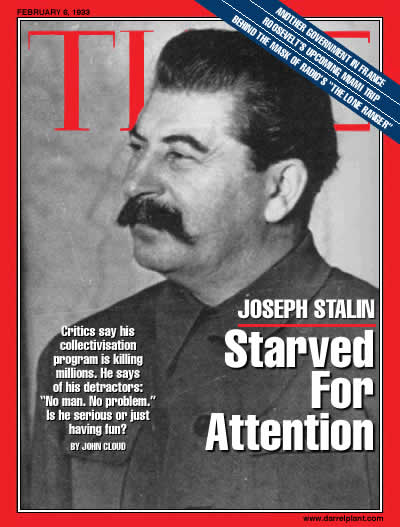

I have tended to think of world politics as divided between the Socialists, the Totalitarians and the Liberals. Of course I have been aware of corrupt societies ... from Louisiana to Brazil and I am aware that the totalitarian "people's" state of China is corrupt.
What I had never considered is the possibility that a novel form of government my emerge from the fusion of a post totalitarian state with Mafiosa. That seems, according to the following article from the Guardian (click on title of post, to be happening in Russia.
I have no good name for this new thing, but given Stalin's origins as a thug I suggest neo-Stalinism. Unlike the original Stalinism, this is not a cult of the personality. Moreover, where Stalin built no institutional mechanisms for succession, the image here is of something akin t a corporate succession where the capital is controlled by very few. Combine this concept with modern State control of the media and classical use of secret police ... we may be seeing something new,
"According to Panfilova, the "randomised" corruption of the 1990s has given way to the "systemic and institutionalised corruption" of the Putin era. Members of Putin's cabinet personally control the most important sectors of the economy - oil, gas and defence. Medvedev is chairman of Gazprom; Sechin runs Rosneft; other ministers are chairmen of Russian railways, Aeroflot, a nuclear fuel giant and an energy transport enterprise.
Putin has created a new, more streamlined oligarchy, his critics say. "The crown jewels of the country's wealth have ended up in the hands of Putin's inner circle," Vladimir Rzyhkov - a former independent MP - wrote in Monday's Moscow Times.
Belkovsky - who published a book about Putin's finances last year, and who is the director of the National Strategic Institute, a Moscow thinktank - claims he is confident of his assessment of Putin's hidden wealth. "It's not a secret among the elites,' he said. "But please pay attention that Vladimir Vladimirovich [Putin] has never sued me."



No comments:
Post a Comment